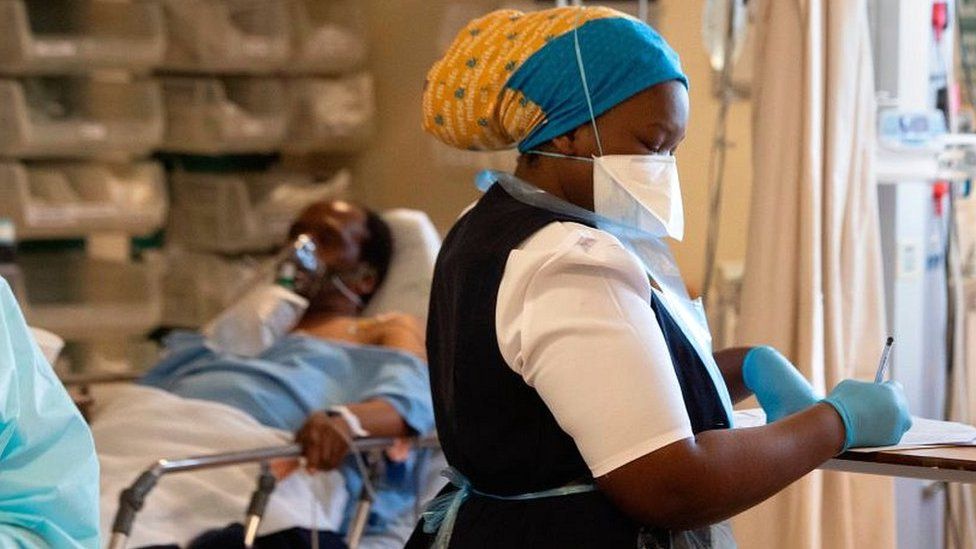Coronavirus in Africa: New variants are causing growing concern

Experts believe the spread of new coronavirus variants in Africa has contributed to an increase in both cases and deaths across the continent.
At least a dozen countries have so far confirmed presence of the variant first detected in India late last year.
But there is concern that new variants can’t easily be tracked because the testing required to identify them isn’t widely available.
What’s the role of the Indian variant?
The new wave of infections in Africa is thought to be partly associated with the emergence of some variants that are more transmissible.
· What are the Indian, Brazil and South African variants?
Uganda was the first country on the continent to confirm the presence of a variant first identified in India late last year.
This variant has now been reported in Kenya, Morocco, Algeria, South Africa, Botswana, Angola, DR Congo, Nigeria, Uganda, Zambia and Zimbabwe.
It has been classified by the WHO as a “variant of global concern” with possible increased transmissibility.
Another variant of the virus which emerged in South Africa last year contributed to record case numbers in the southern African region, according to the World Health Organization (WHO).
This variant has as also been recorded in more than 20 other African countries.
It’s highly likely to have reached other countries, but few are able to carry out the specialised genomic sequencing to detect coronavirus variants.
In Nigeria, scientists have also identified a new variant of the virus, although there is currently no evidence to indicate it is contributing to increased transmission.
Twenty countries have also reported the presence of a Covid-19 variant first identified in the UK.
The WHO and the African Centres for Disease Control launched a network of laboratories last year to try to boost the continent’s capacity to identify these variants.
It said the emergence of new, and more contagious variants “reinforced the need to step up genomic surveillance.”
This involves analysing the code of the virus to understand its genetic makeup.
However, a recent article in The Lancet pointed out that while efforts were underway to expand this type of work, there were issues around funding, as well as shortages of reagents and staff with the skills required.
What’s happening to case numbers?
Over the past month, new cases across the continent declined by 9%, according to the CDC.
New cases have been rising in countries such as South Africa, Egypt and Nigeria but dropping in DR Congo, Ethiopia and Kenya.
Click here to see the BBC interactive
“Africa is not out of the woods yet, and complacency is not an option at this time,” says the head of immunisation at the WHO Africa office, Richard Mihigo.
Most countries have launched Covid-19 immunisation campaigns, but there are still a few countries yet to roll out or even acquire vaccines.
|
Death rates have been rising
The number of Covid-related deaths rose by 4% in the past month, according to CDC data.
During the first stage of the pandemic, Africa’s overall fatality rate – the proportion of those with Covid who then die – was lower than elsewhere in the world.
There were a number of theories put forward as to why that might be the case, such as the relatively younger population, and possible cross-immunity from other coronaviruses.






